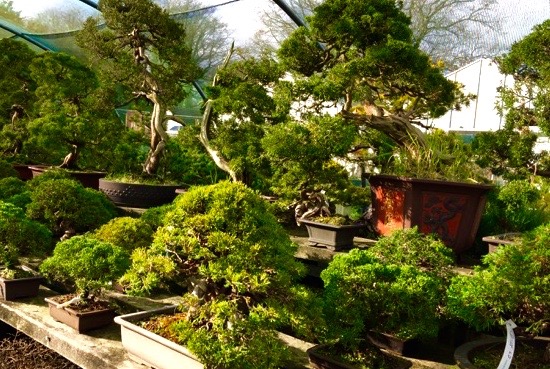Outdoor Bonsai Trees
We have a large and impressive selection of outdoor bonsai trees to choose from.
Bonsai growers often regard the outdoor plants as the 'real' bonsai. These are the trees and shrubs that will grow outside without special protection. Many bonsai enthusiasts grow only outdoor bonsai because they are much easier to care for and there is more scope for creativity.
As outdoor bonsai grow faster than indoor bonsai, you will see the results of reshaping, wiring and pruning much sooner. Outdoor bonsai also offer more scope for practising the hobby. Some enthusiasts make their own bonsai from garden and nursery plants, and some collect the raw material from the wild. You can also propagate your own plants from seed or cuttings or by air layering.
The choice of outdoor bonsai is much wider than of indoor species.



